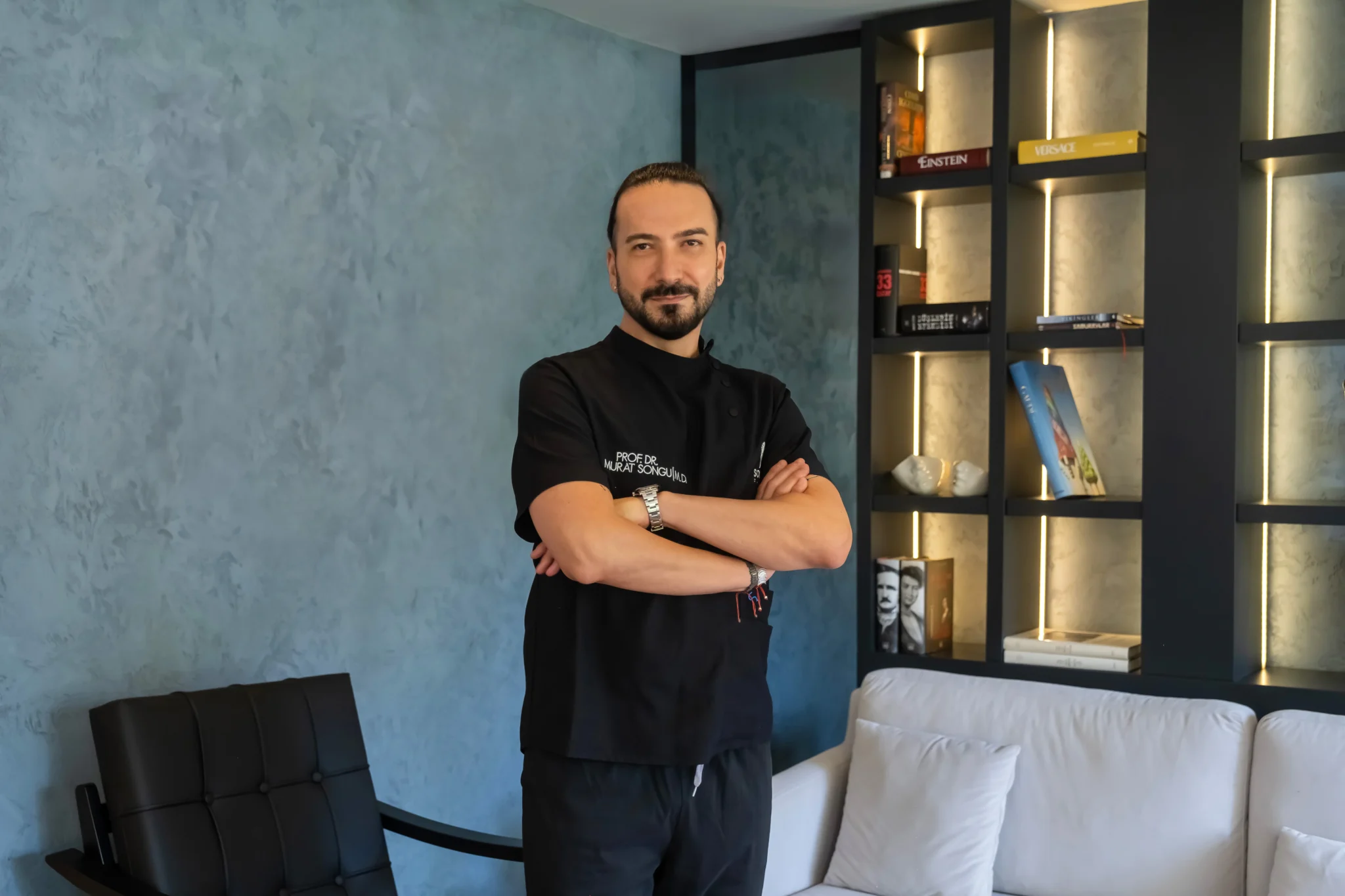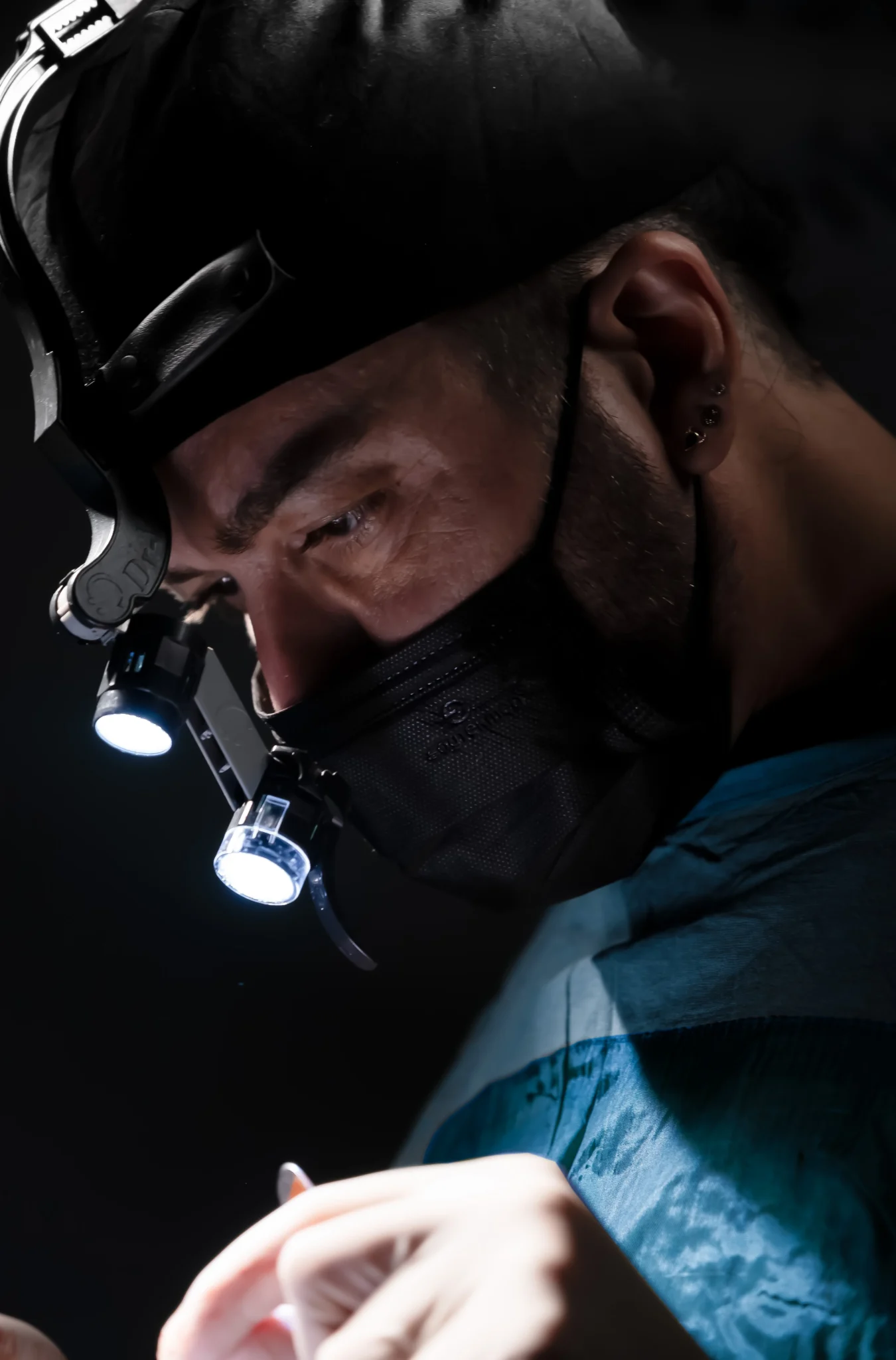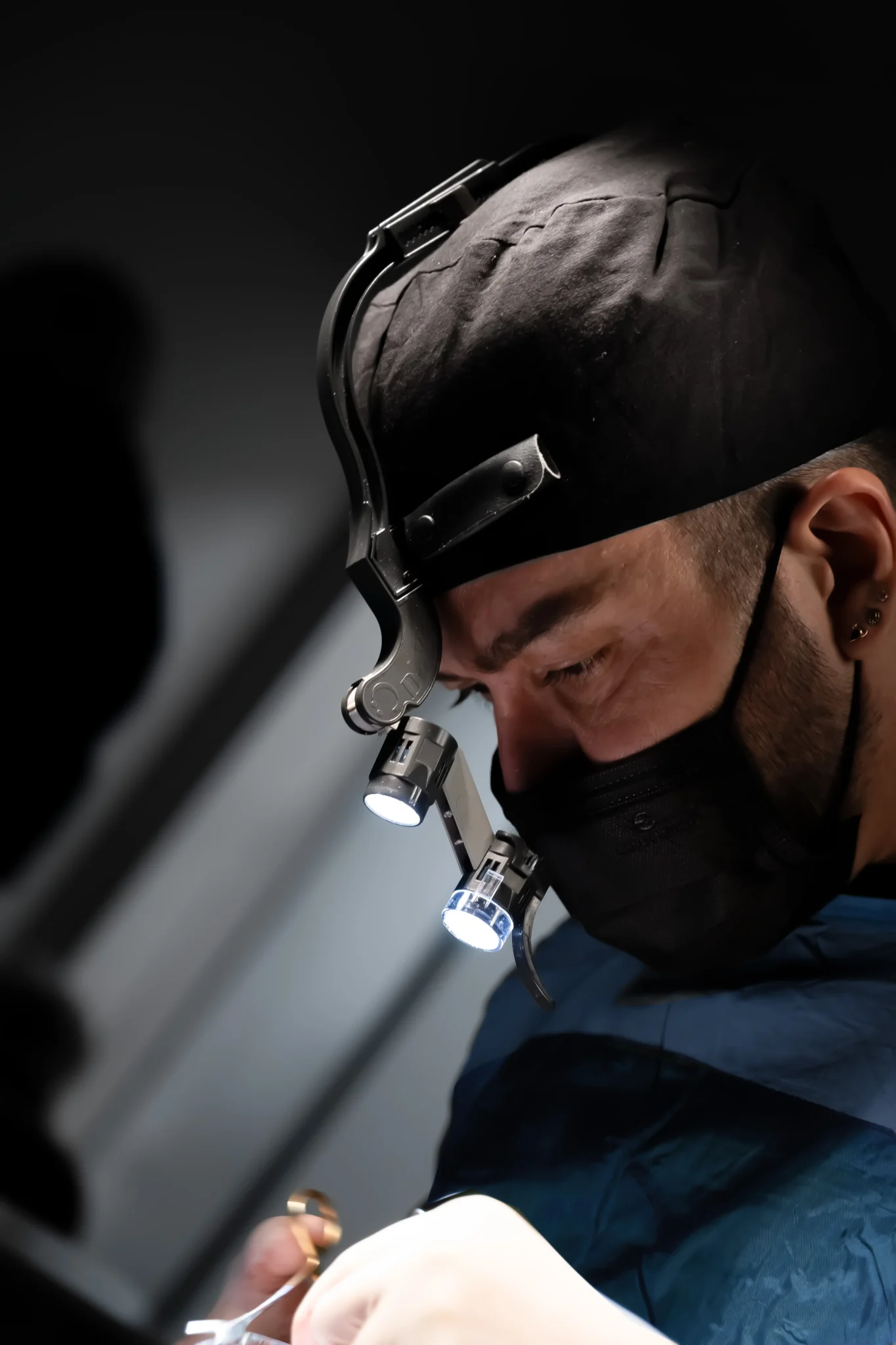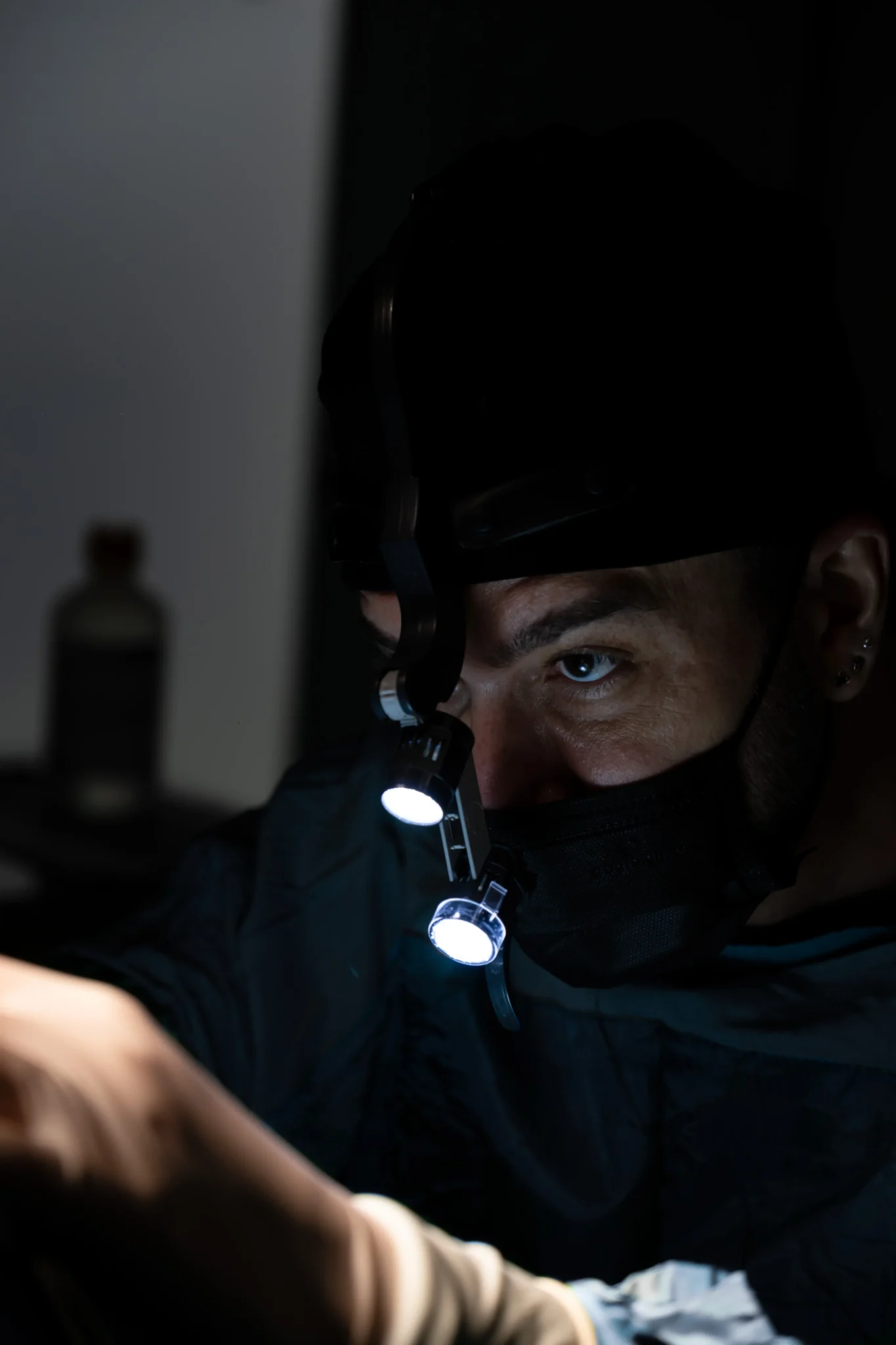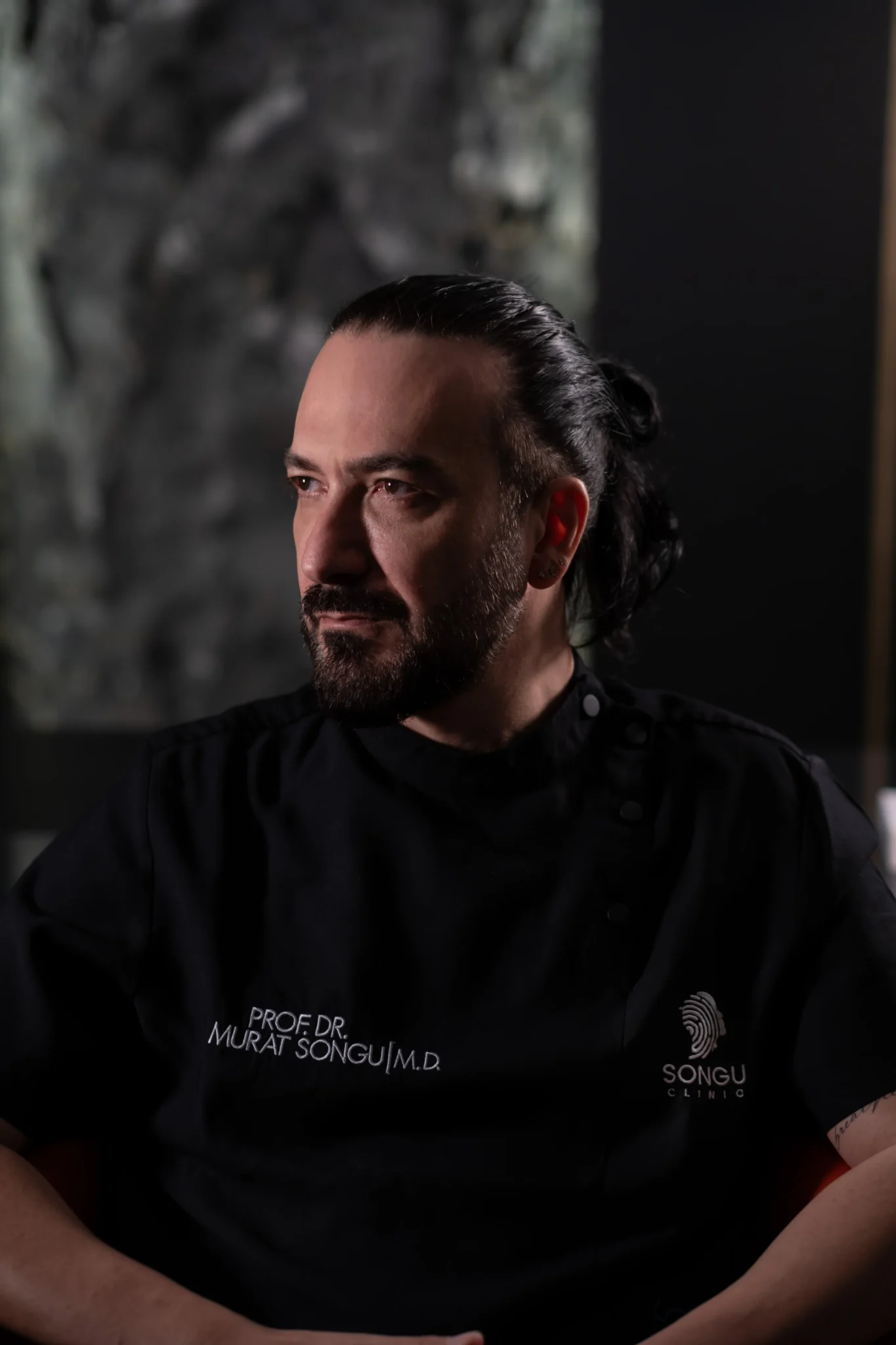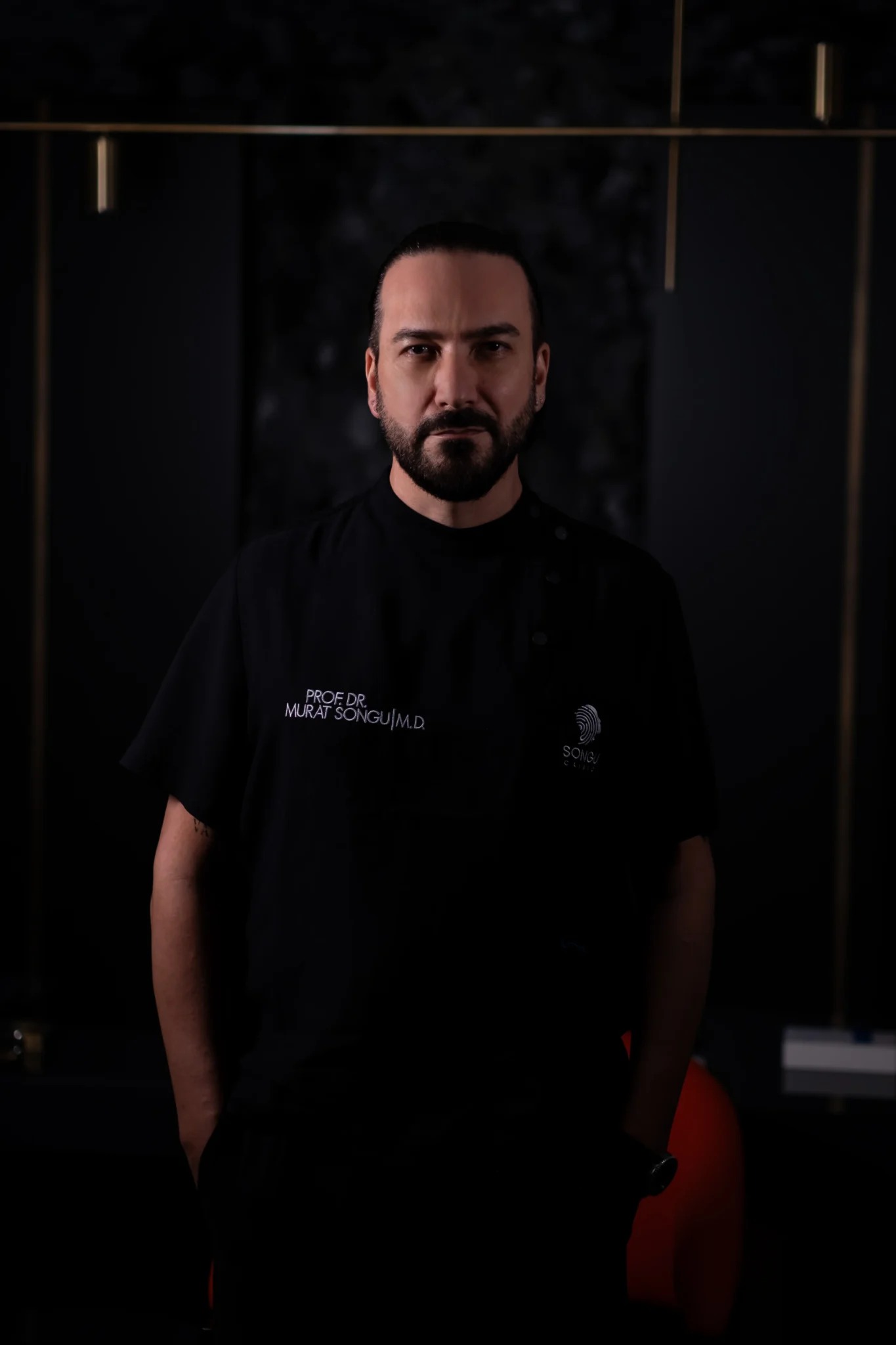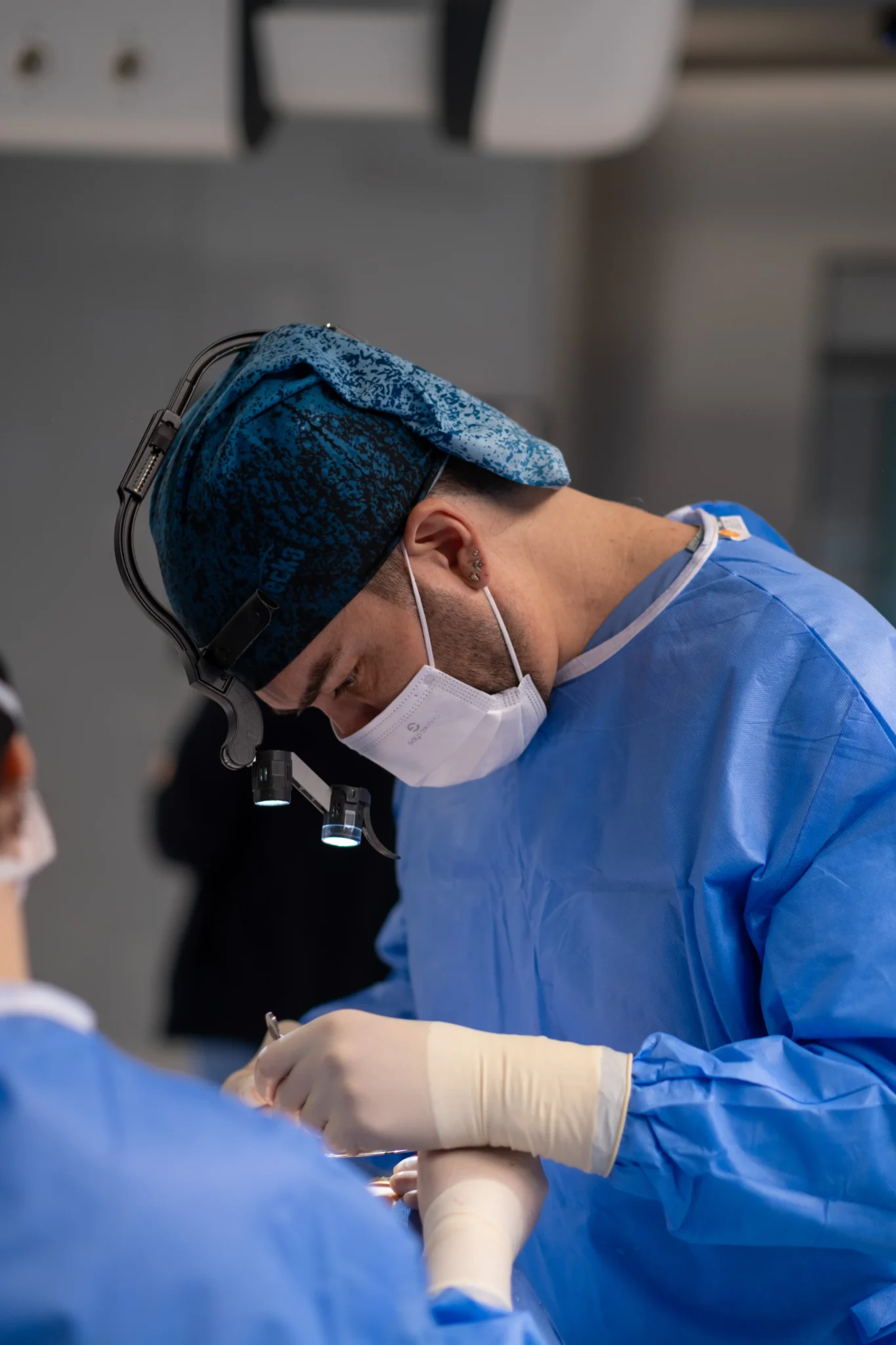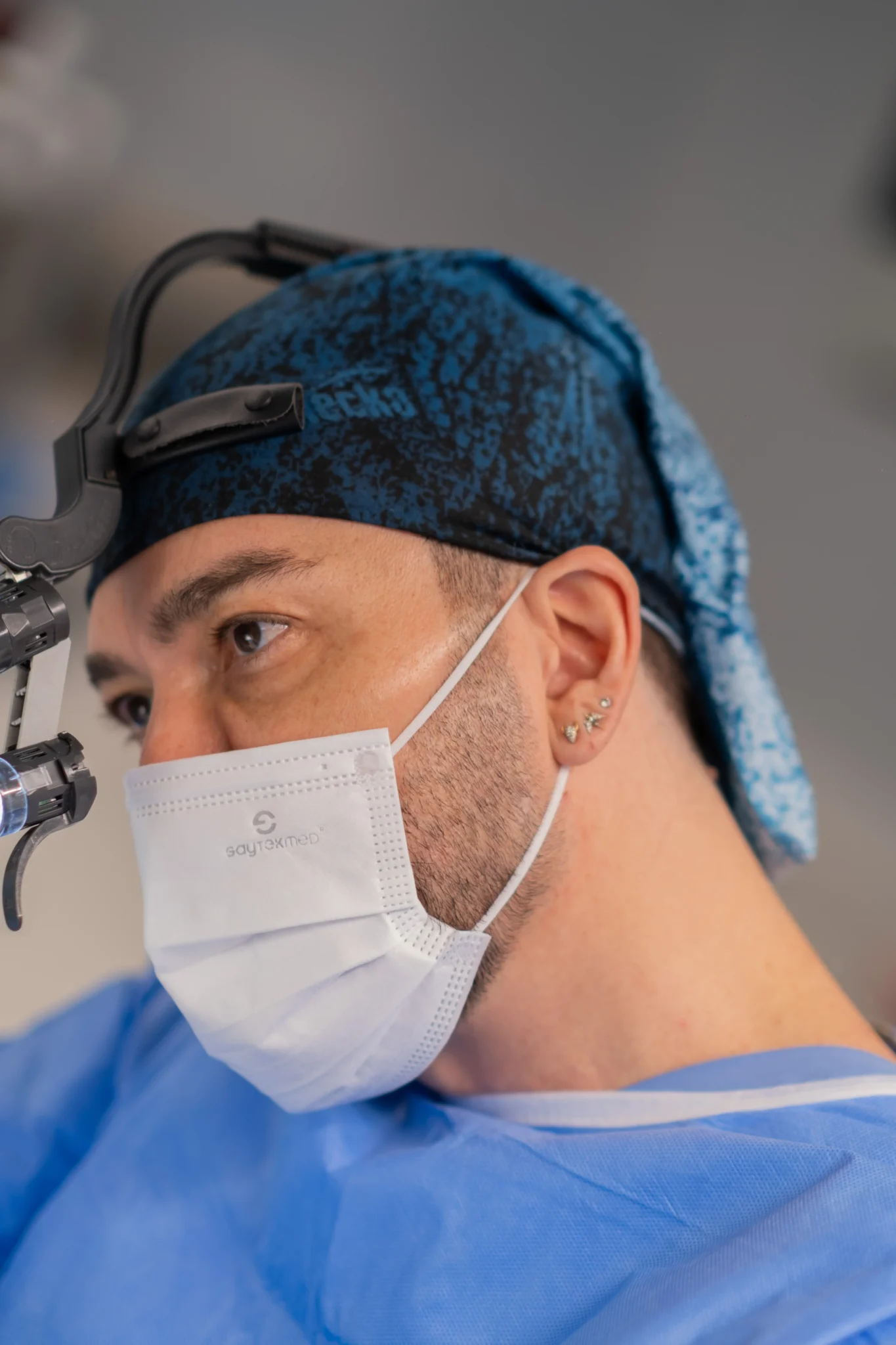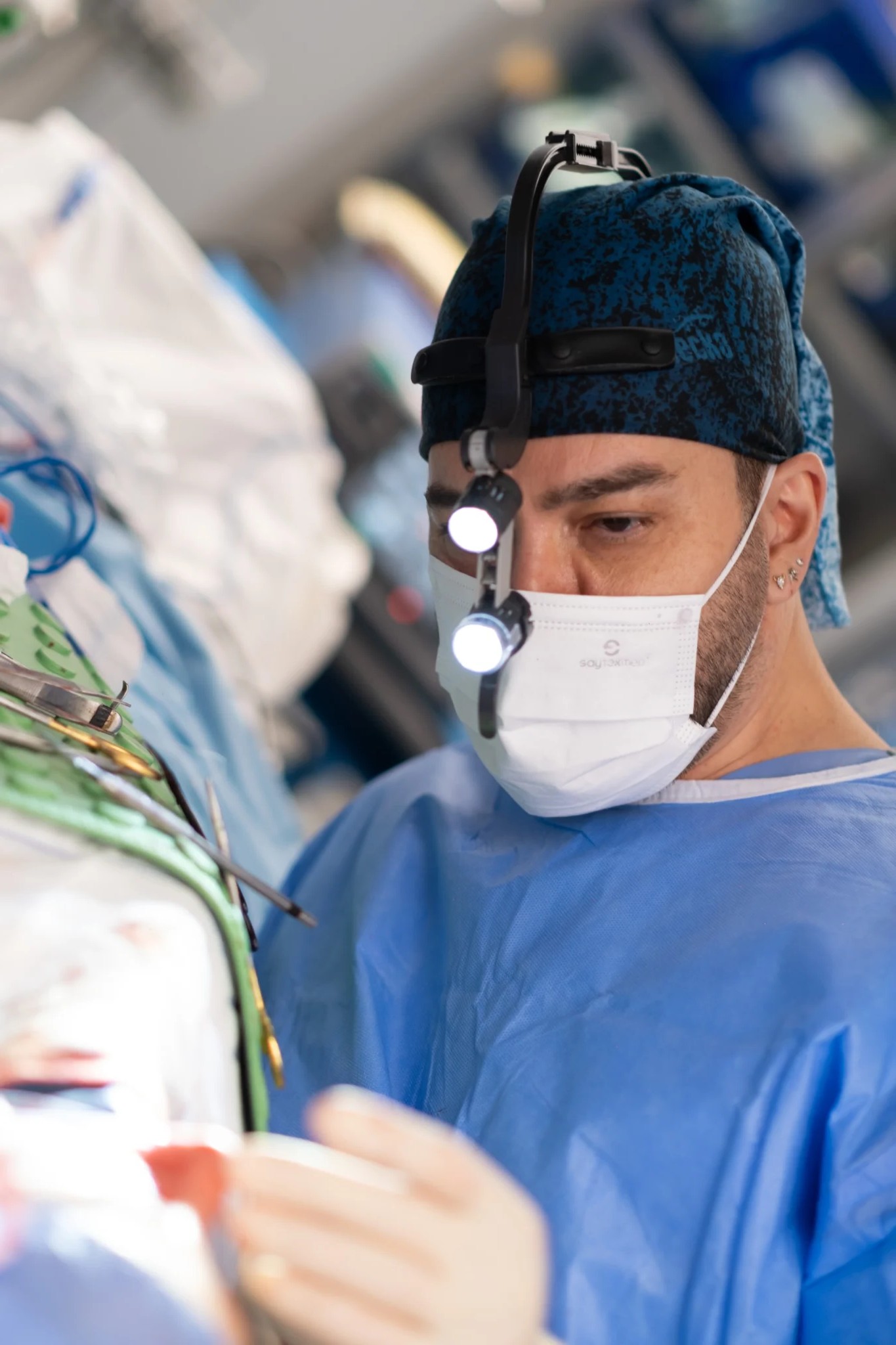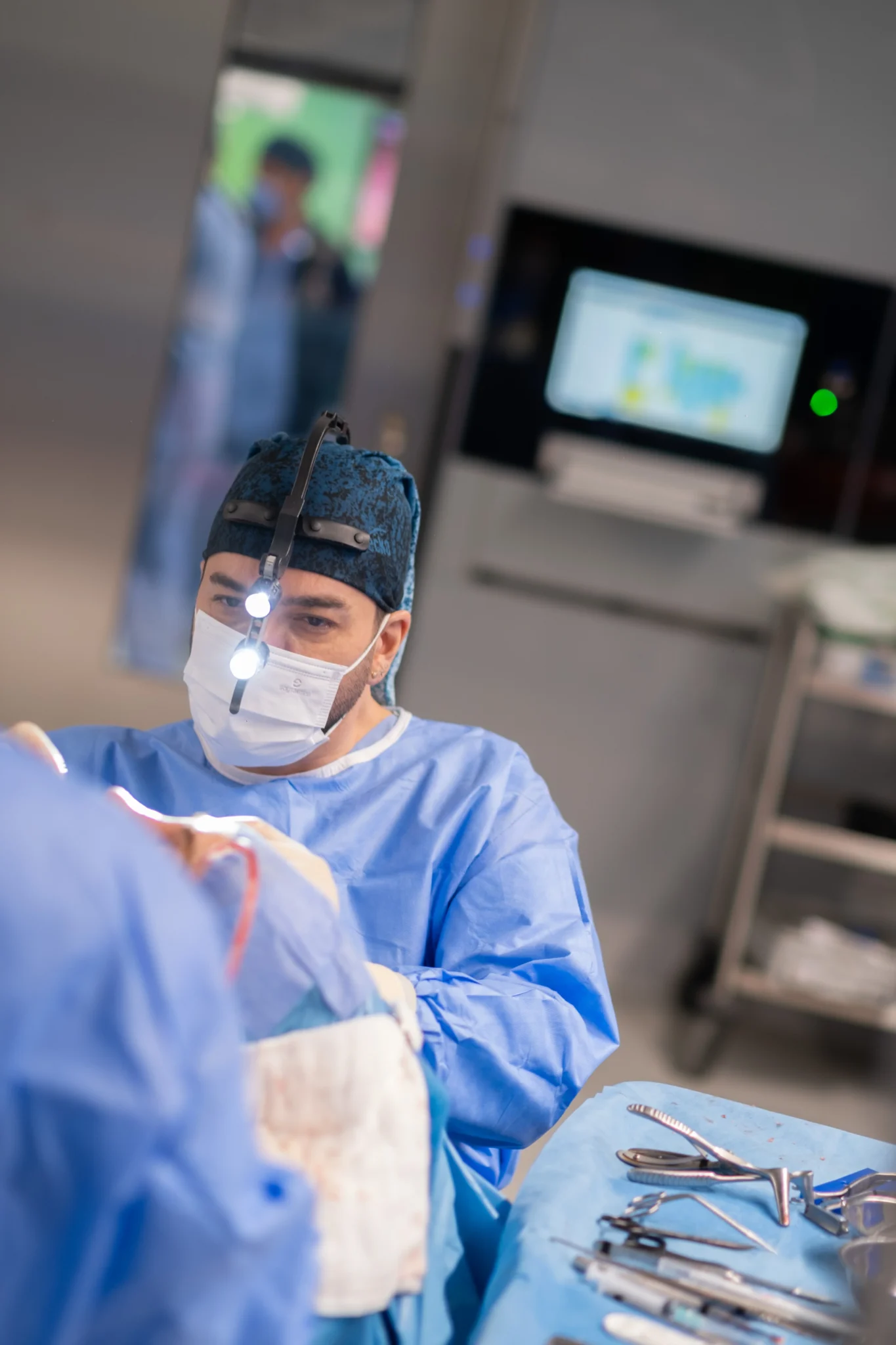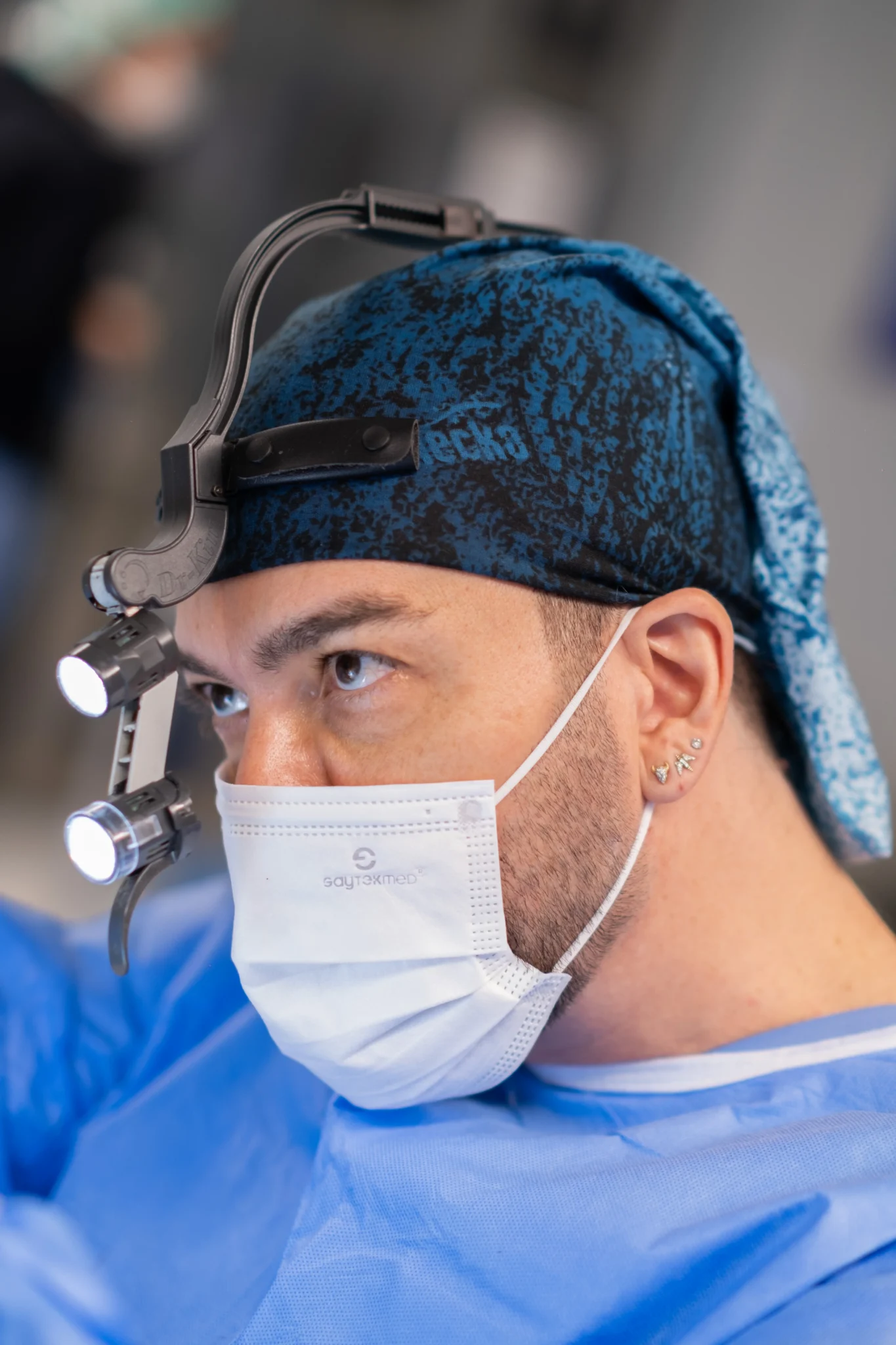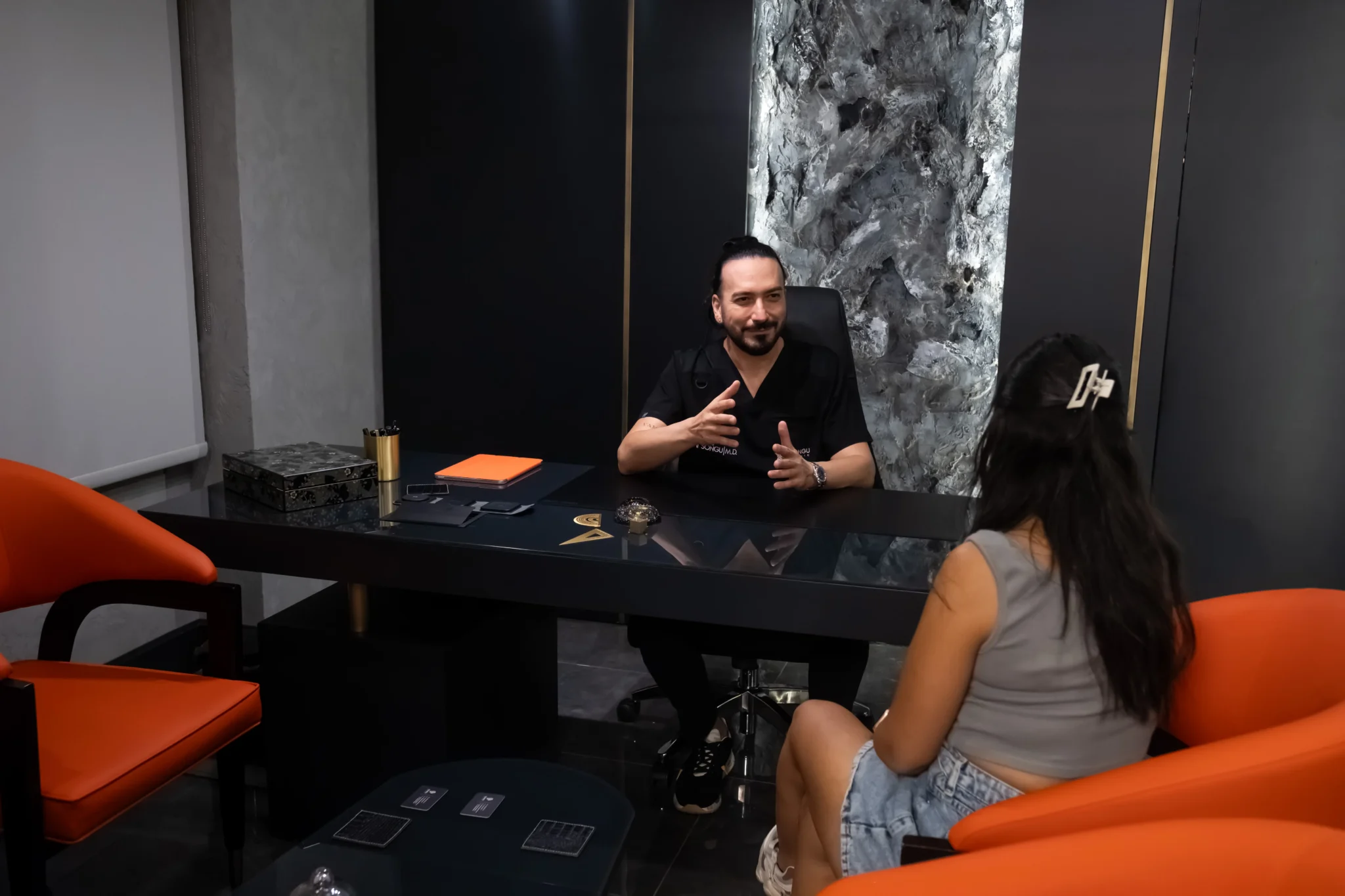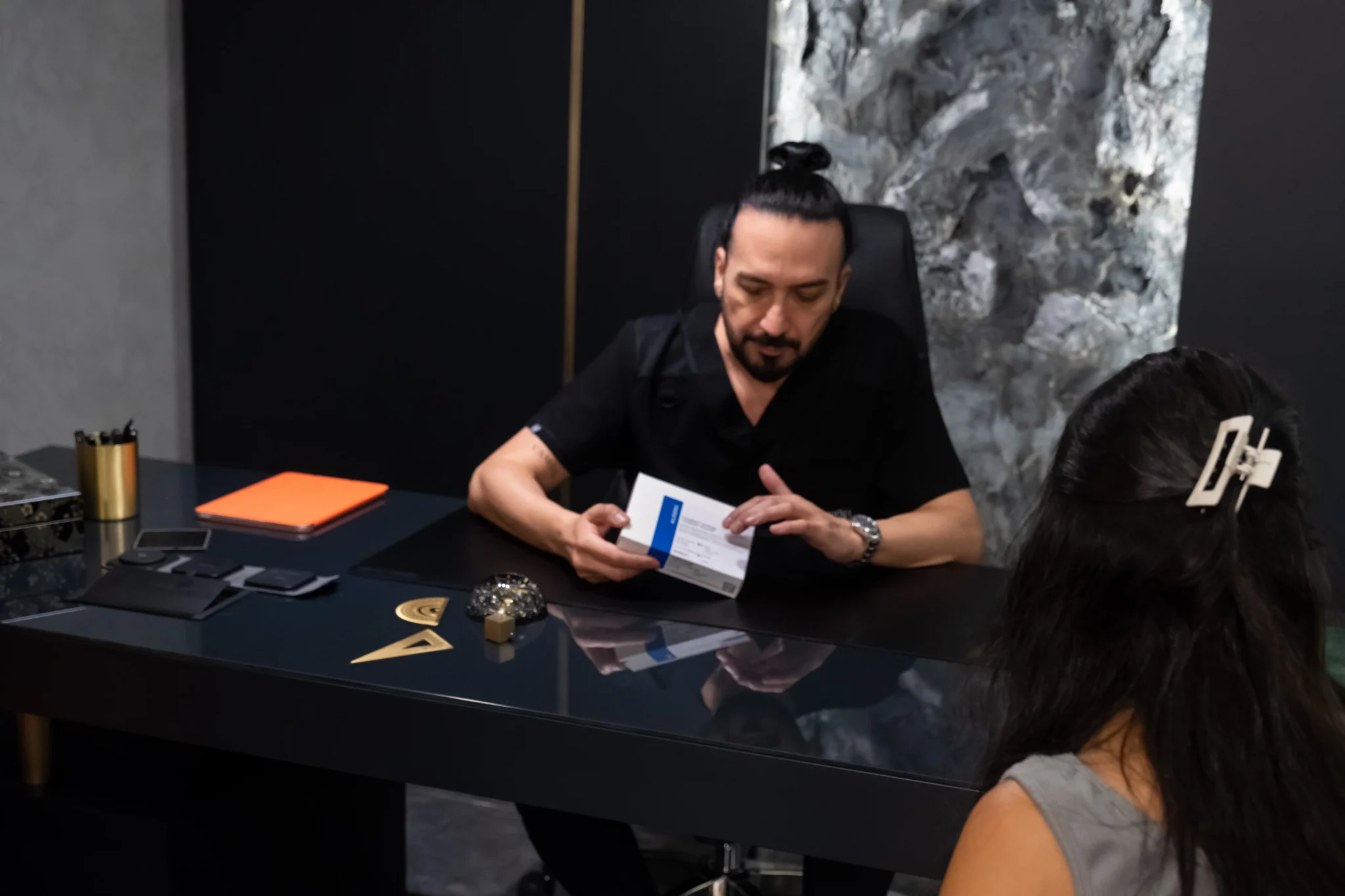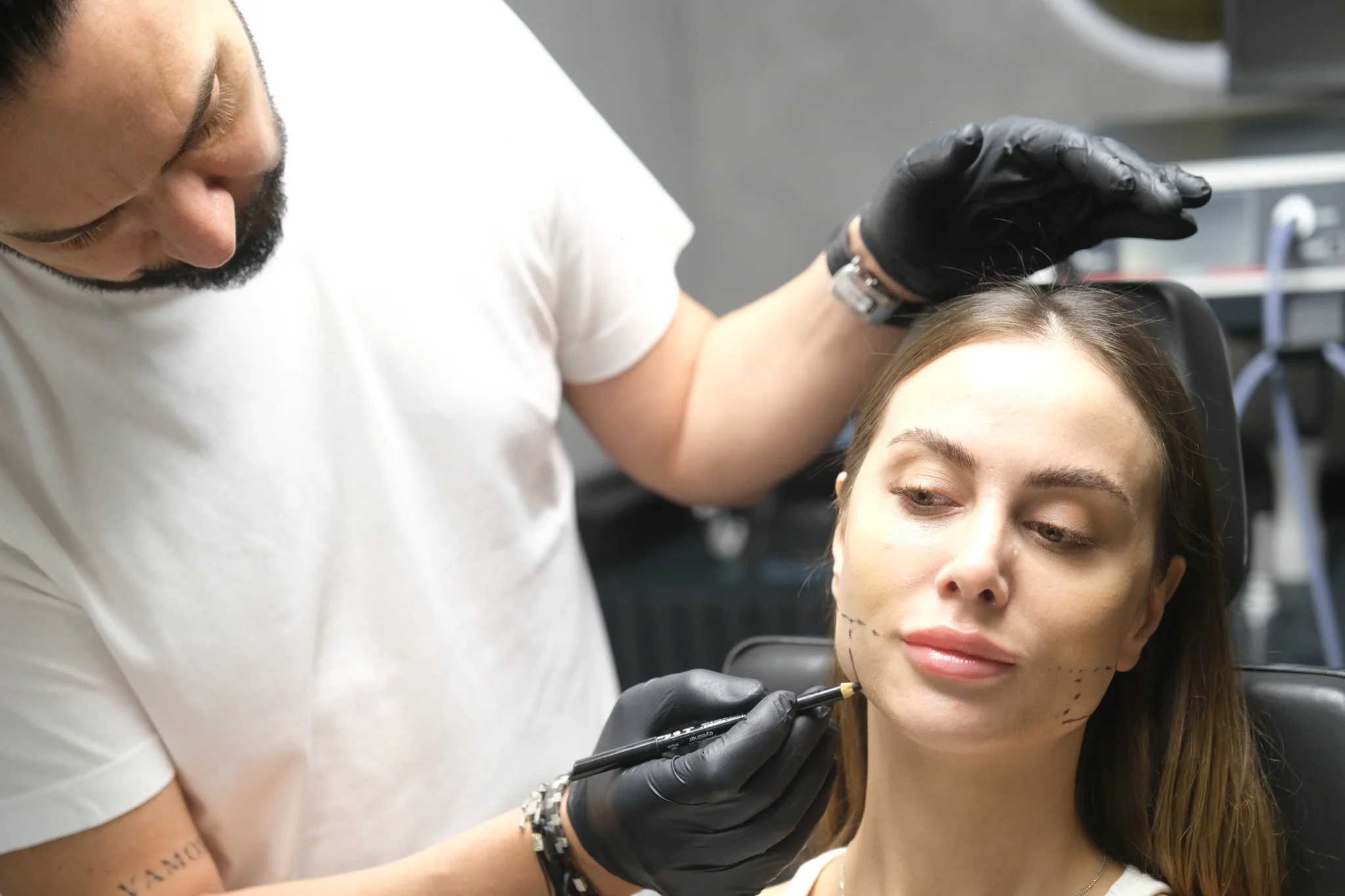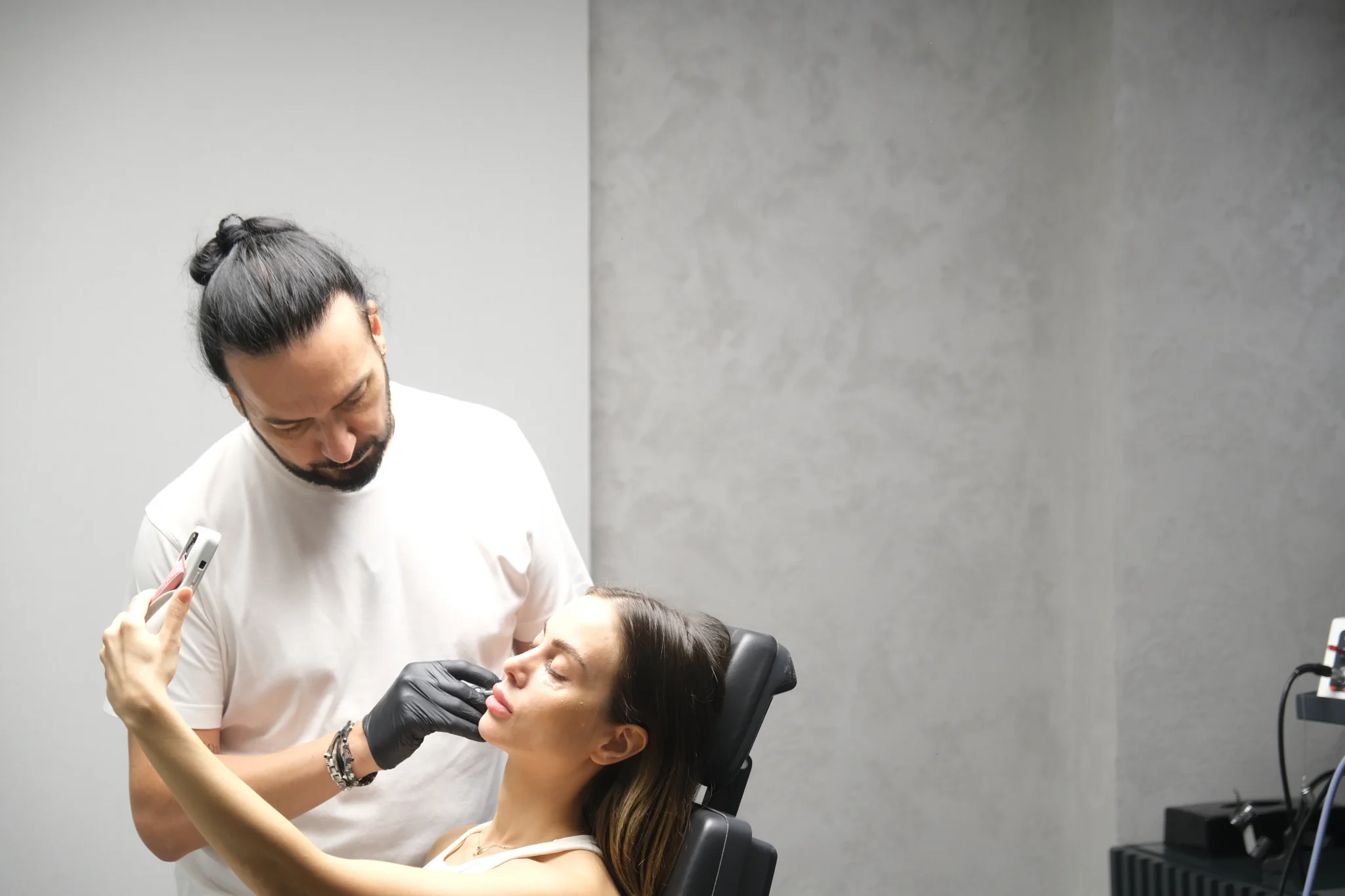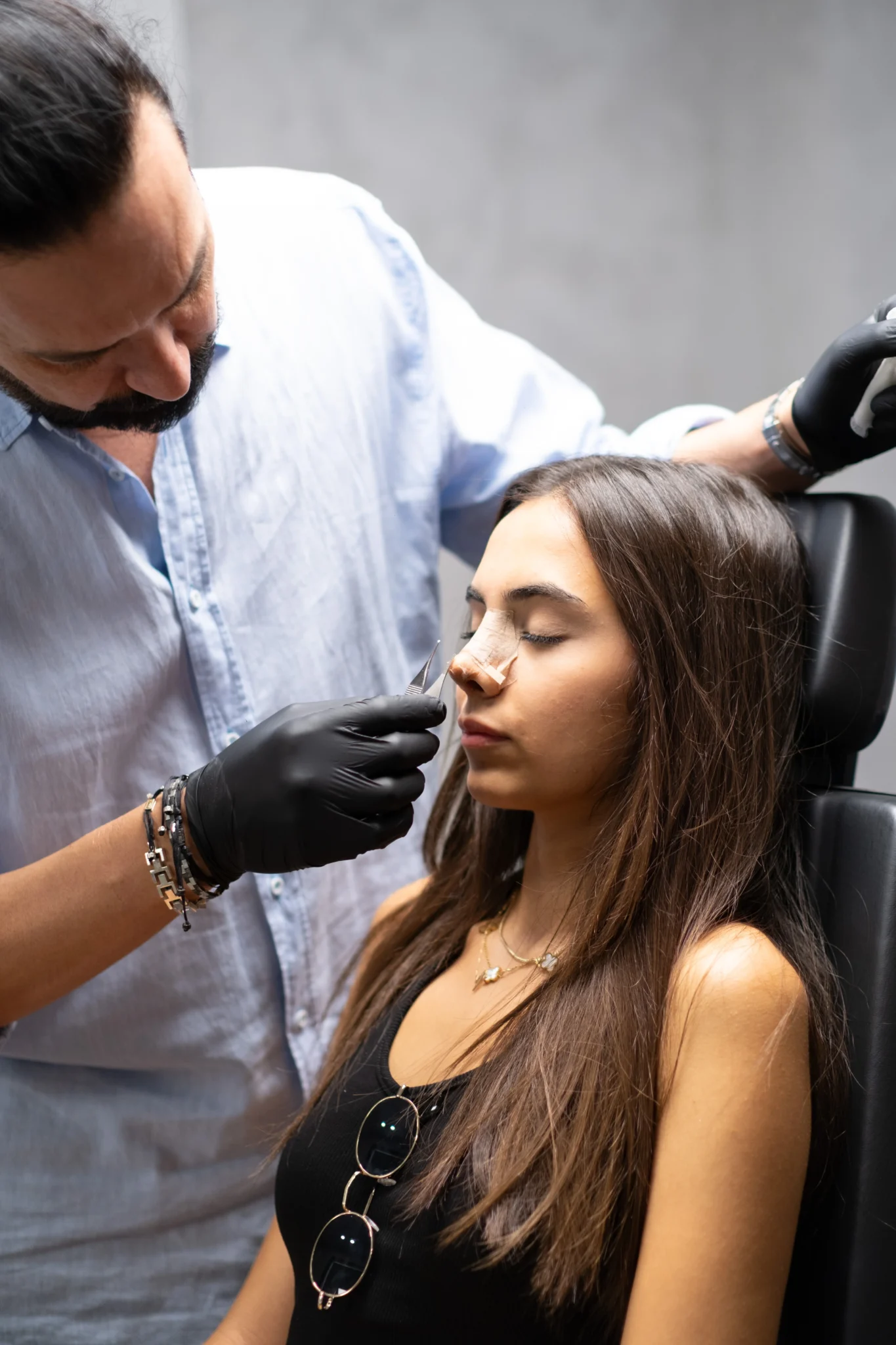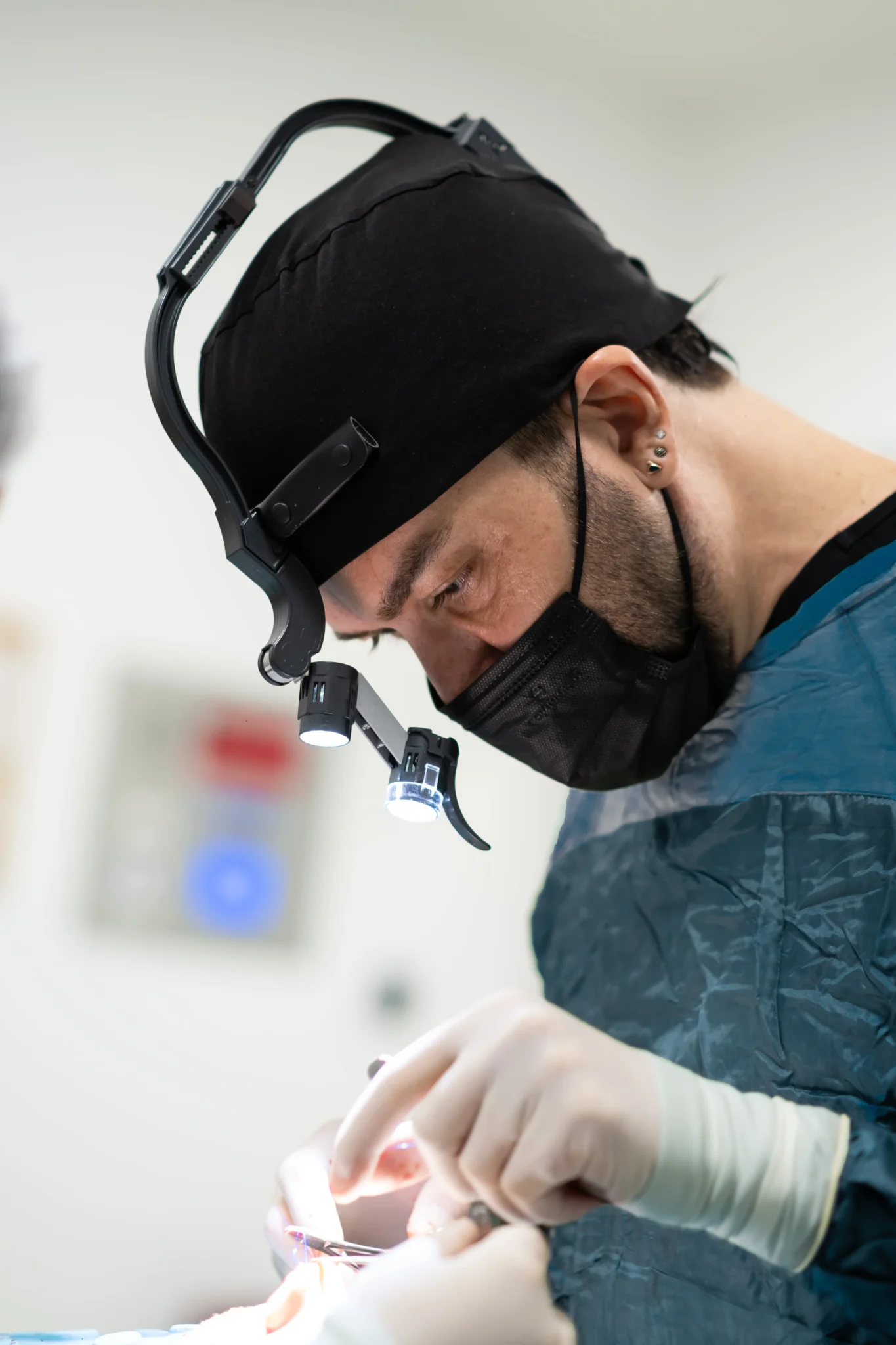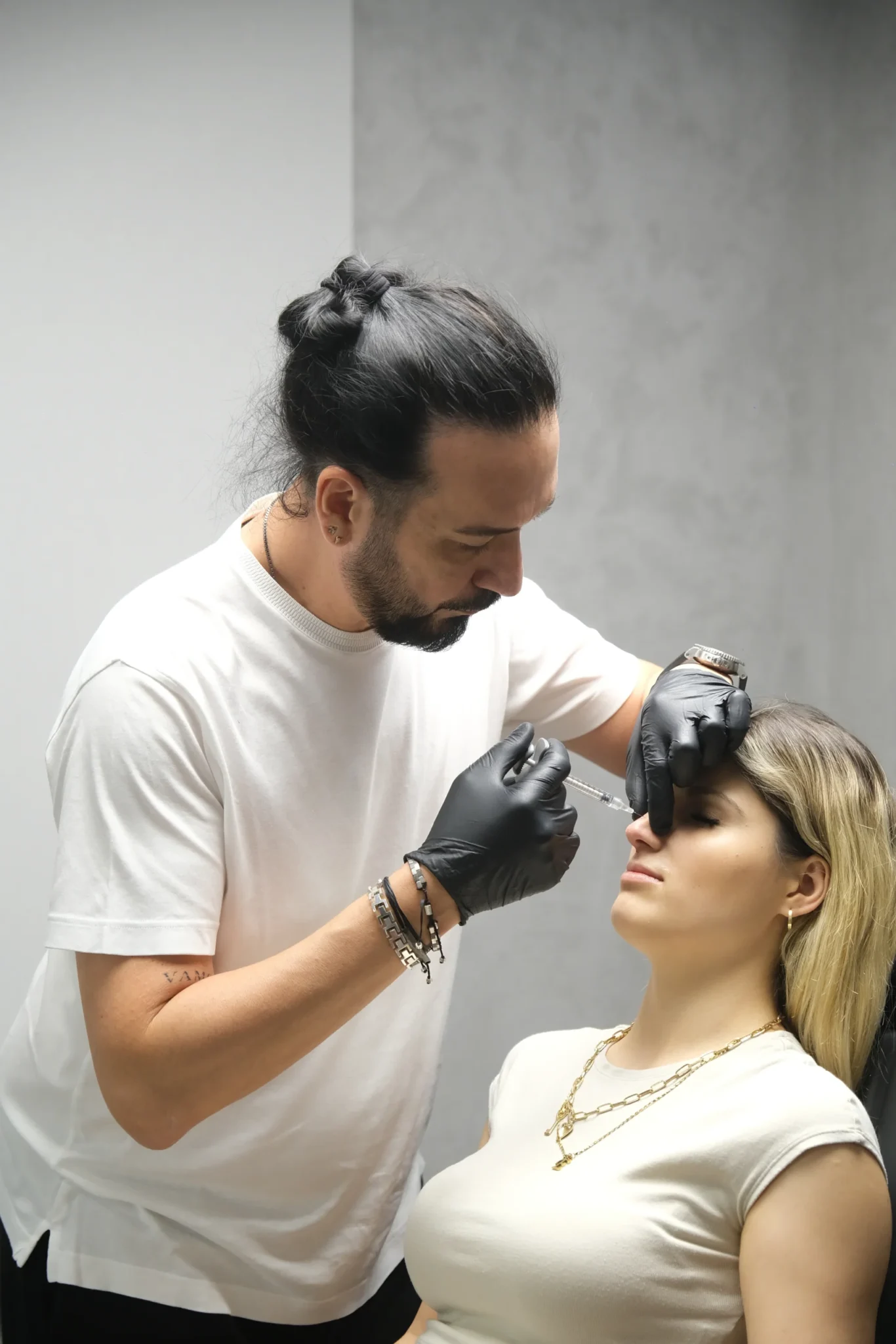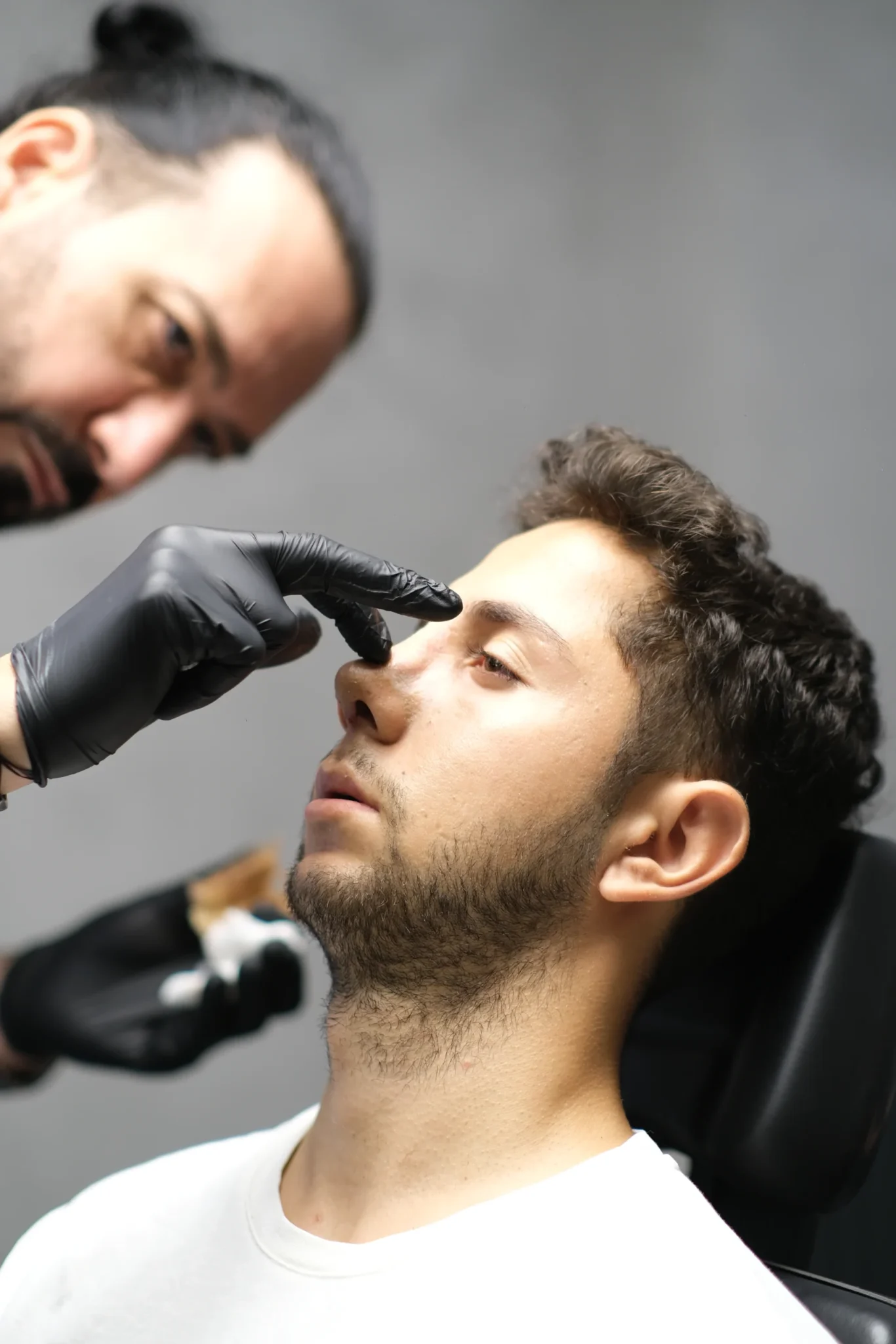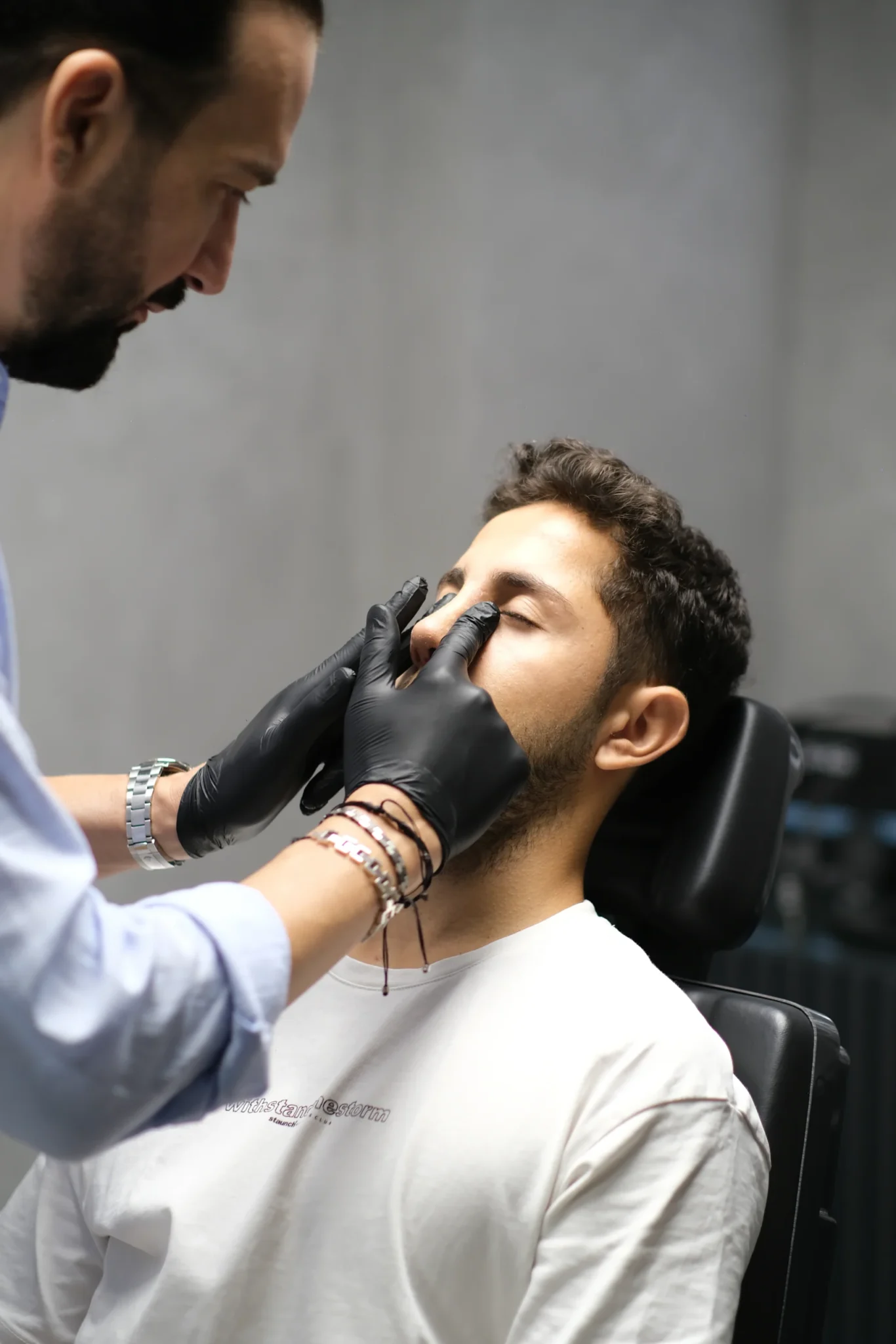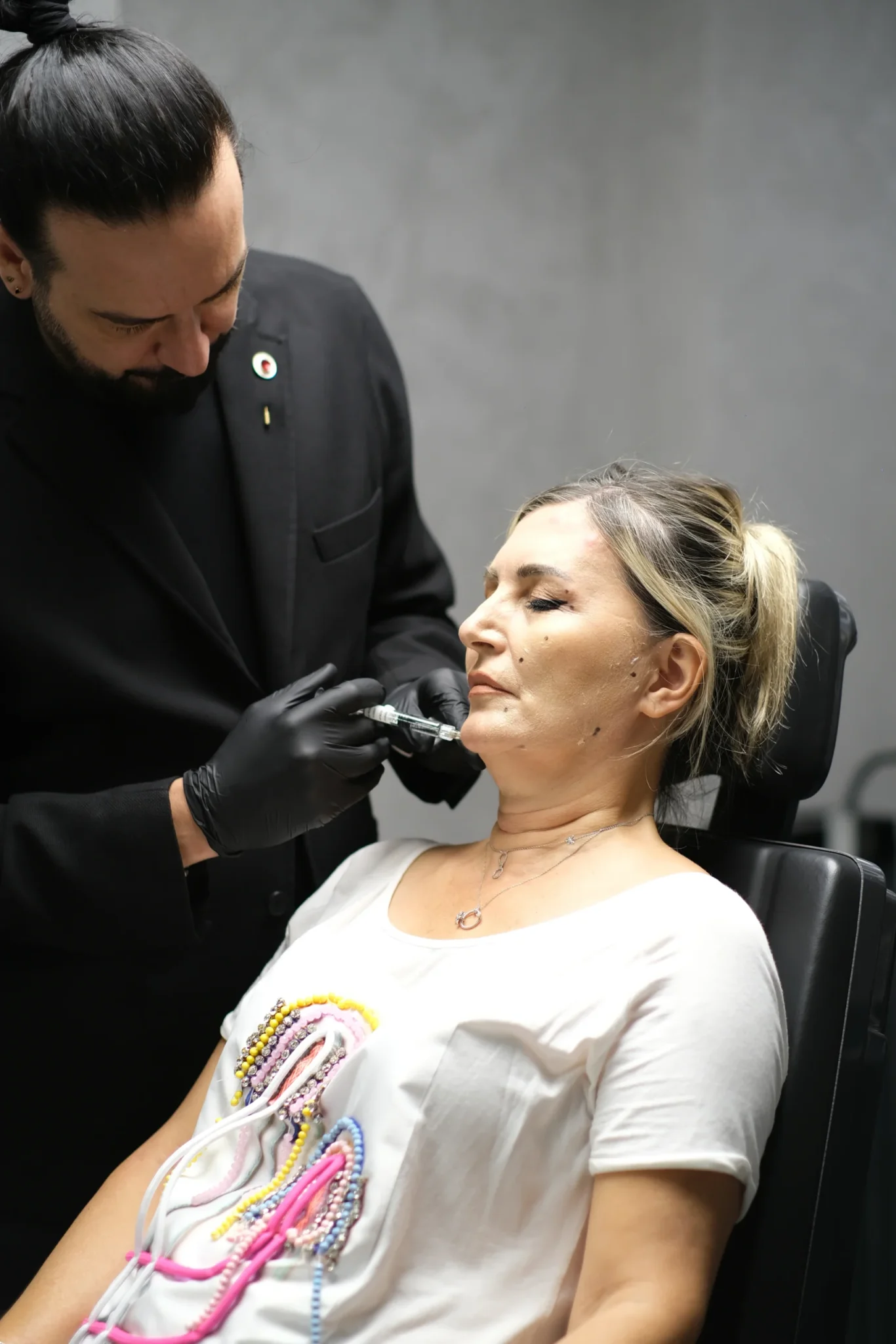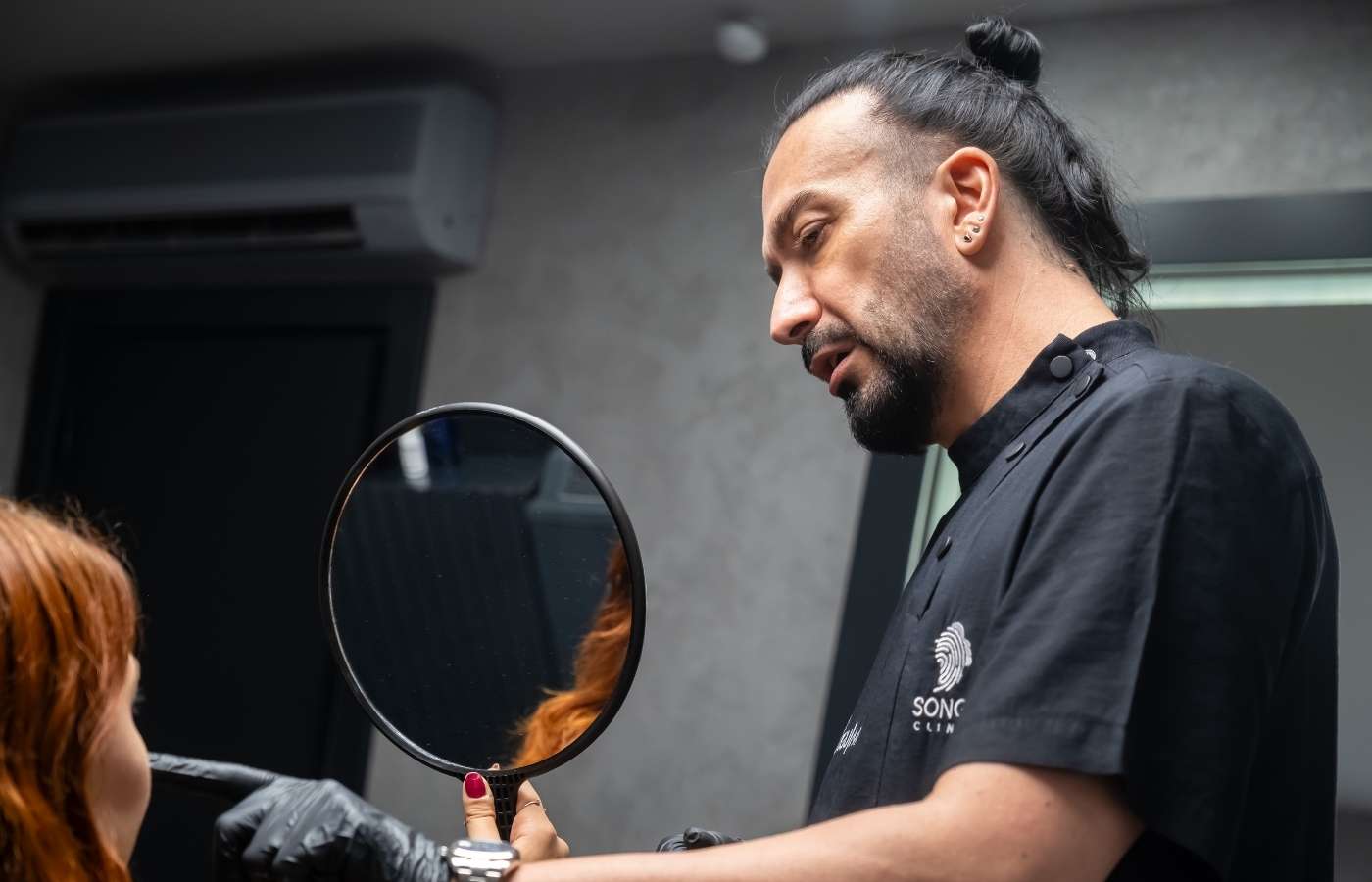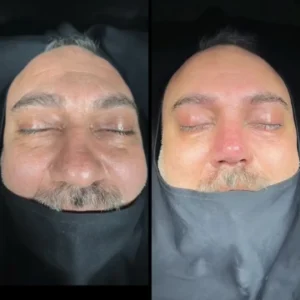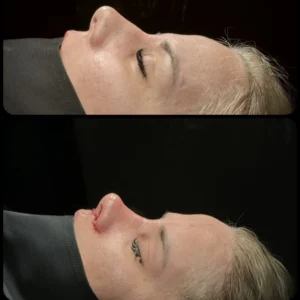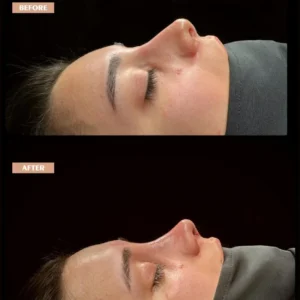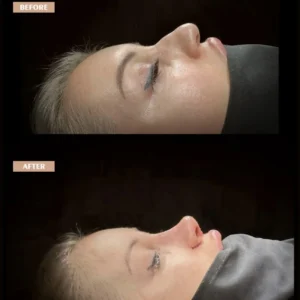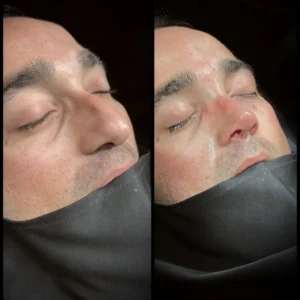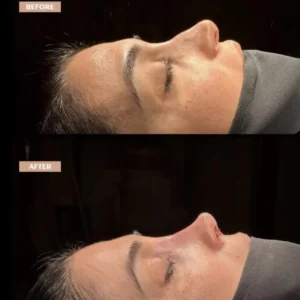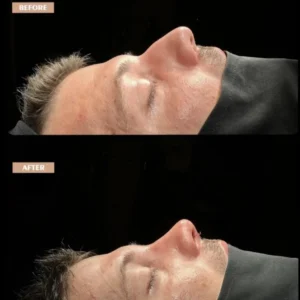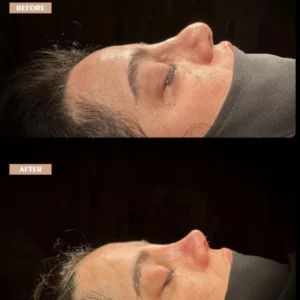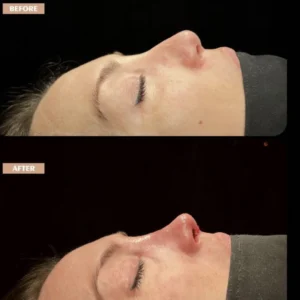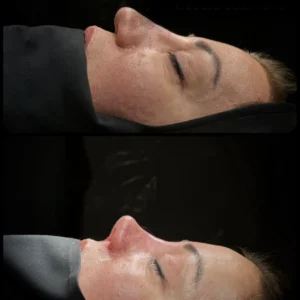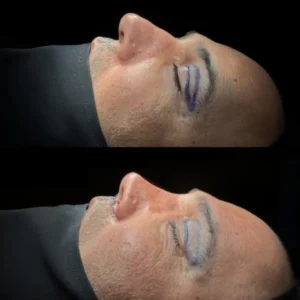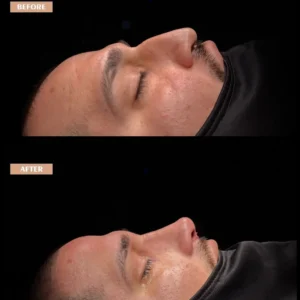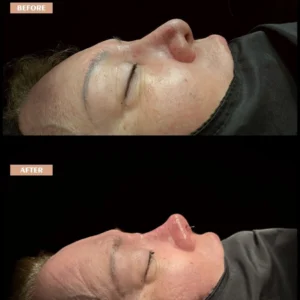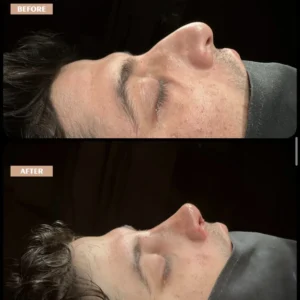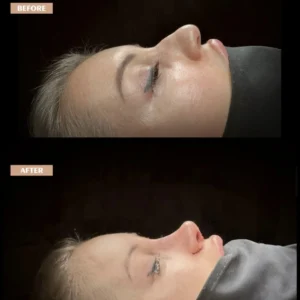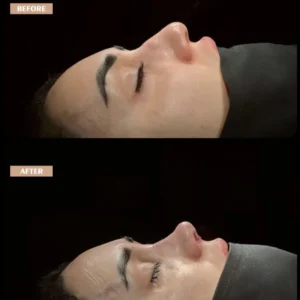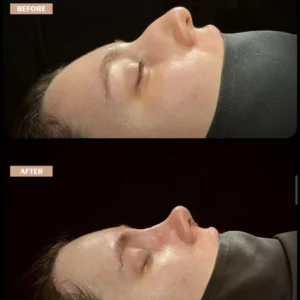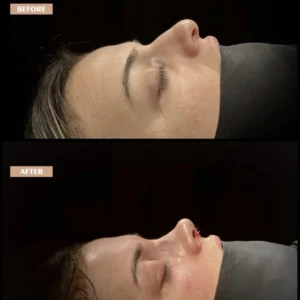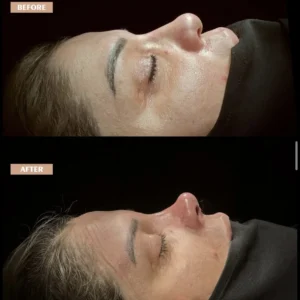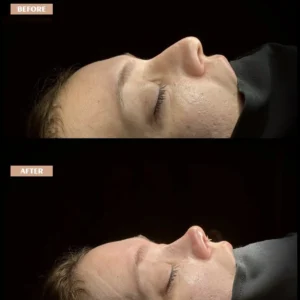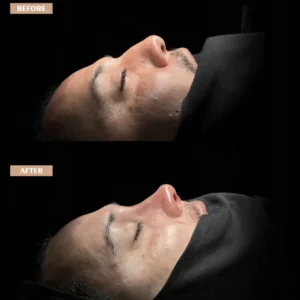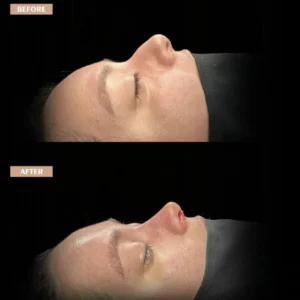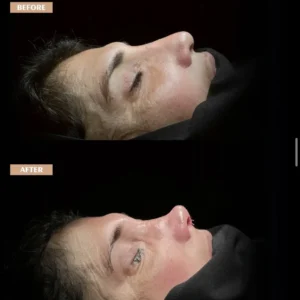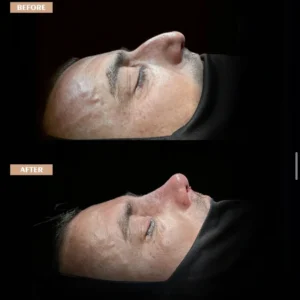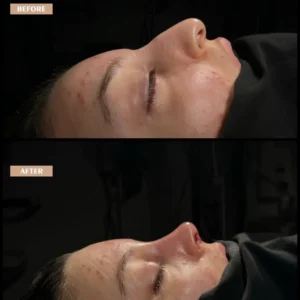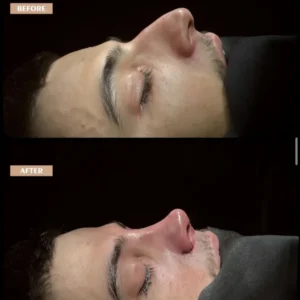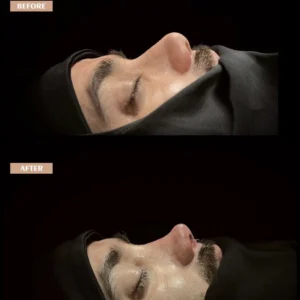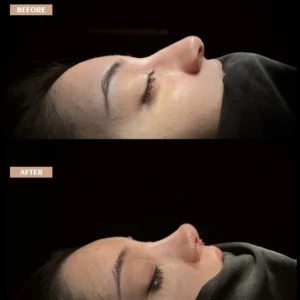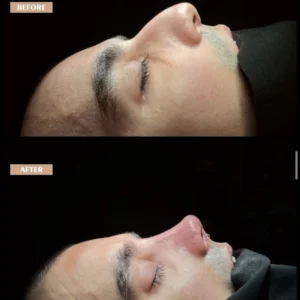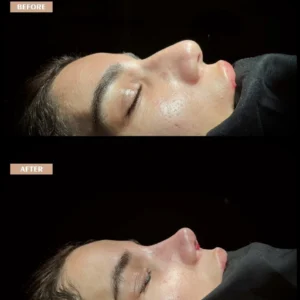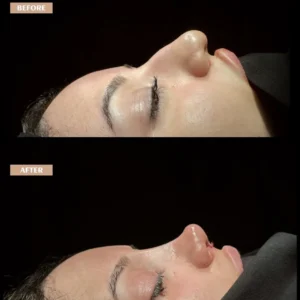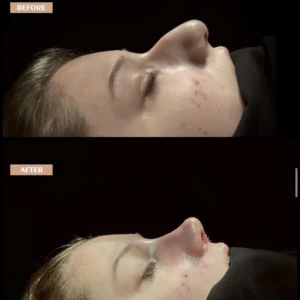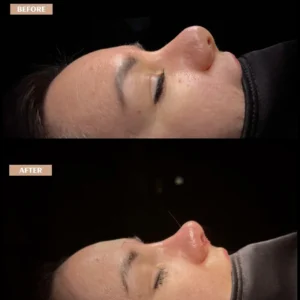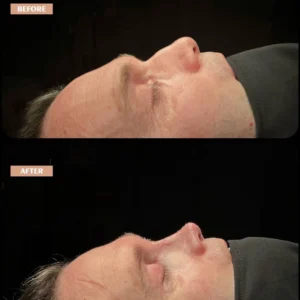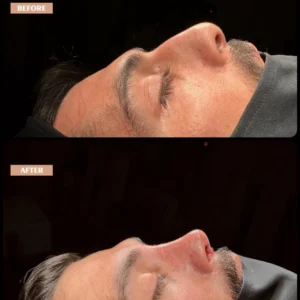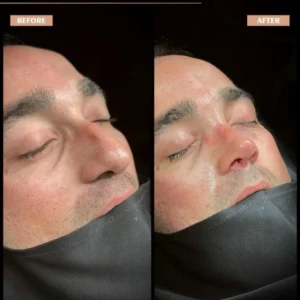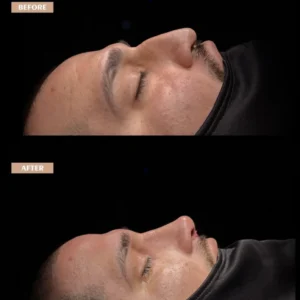
Tampon-free Nose Surgery is a treatment option addressing Rhinoplasty and health problems. This surgical technique represents an approach that does not require the traditional use of tampons.
New-generation silicone tampons may be used, or the procedure can be performed with stitches only, without any tampon placement. This method increases patients’ postoperative comfort and accelerates their recovery process. Tampon-free nose surgery ensures that patients experience less pain, swelling and bruising after the operation.
Moreover, patients can breathe comfortably through the nose shortly after surgery and quickly return to their daily routines. By reducing the fear of surgery for many people, this method makes nose operations a more accessible and safer option.

Turkey's Rhinoplasty Doctor
Prof. Dr. Murat Songu
Revision Rhinoplasty Specialist
Born in İzmir in 1976, Prof. Dr. Murat Songu entered İzmir Atatürk High School and then, in 1994, started at Ege University Faculty of Medicine. He completed his specialty training in Ear, Nose, and Throat Diseases at Celal Bayar University. In 2005, he worked on rhinology and otologic surgery in Bordeaux, France, at St. Augustin Clinic with Dr. Guy Lacher and at Bordeaux University with Prof. Vincent Darrouzet.
What Is Tampon-free Nose Surgery?
Tampon-free Nose Surgery is a surgical technique in which no nasal tampon is placed during nose operations. While traditional methods employ tampons, this technique eliminates the need for them. It is used to improve nasal aesthetics or breathing functions. The absence of nasal tampons during surgery allows patients to breathe more comfortably afterwards.
In addition, tampon-free nose surgery is generally associated with less pain, swelling and bruising. This method enhances postoperative comfort and can speed up the healing process.
Tampon-free nose surgery enables the surgeon to improve nasal aesthetics or breathing functions based on a specific surgical plan and techniques. Allowing patients to breathe easily through the nose and heal more quickly after the operation are among the primary aims of the surgery.
How Is Tampon-free Nose Surgery Performed?
Tampon-free Nose Surgery is a surgical procedure for Rhinoplasty and health problems. The operation is usually performed under local anaesthesia and involves the following steps:
- Anaesthesia: Local anaesthesia is generally administered. Thus, the patient remains awake during the operation, but the nasal area is numbed.
- Incisions: The surgeon makes small incisions inside the nose or sometimes outside it. These incisions provide the access required for surgery.
- Tissue correction: If problems exist with the nasal bone, cartilage or turbinates, the surgeon corrects or reshapes these tissues. Functional issues are resolved and the desired aesthetic result is achieved.
- Bleeding control: The surgeon controls any bleeding that may occur during the operation. If necessary, electrocautery or other bleeding-control methods may be used.
- Sutures: Depending on the procedures performed, sutures may be placed inside or outside the nose. These stitches hold tissues in place and support healing.
- Tampon or silicone use: In some cases, a tampon or silicone may be placed inside the nose. This helps control bleeding and supports the healing process.
Tampon-free Nose Surgery enables patients to enjoy a comfortable recovery period and adapt more quickly to the postoperative phase. How the surgery is performed depends on the patient’s individual condition and the aims of the operation, so a customised surgical plan is created for each patient.
Before & After Gallery
Postoperative Recovery Process After Tampon-free Nose Surgery
The recovery process after tampon-free nose surgery generally offers a faster and more comfortable experience for patients. Pain, swelling and bruising are less common after the procedure. However, there are several factors to consider during recovery:
- Patients can be discharged within 5 to 6 hours after surgery.
- No problems are experienced when breathing through the nose after the operation.
- Throat irritation or swallowing problems are rare.
- Patients can eat easily after surgery.
- Symptoms such as bruising, swelling, eye irritation or pain are minimised.
- Night-time sleep may be more comfortable.
- Patients can usually return to normal daily activities the next day.
- Tampon-free nose surgery is completed in a shorter time with less discomfort and pain during recovery.
- Following the doctor’s recommendations is important to support the healing process.
The recovery period after tampon-free nose surgery may vary from patient to patient, so it is important to follow your doctor’s instructions precisely. Regularly attending follow-up appointments is crucial for monitoring recovery and performing any necessary interventions.
Advantages and Disadvantages of Tampon-free Nose Surgery
Tampon-free nose surgery offers many advantages but also includes certain disadvantages.
Advantages:
- Comfortable Recovery: Tampon-free nose surgery enables patients to experience less pain, swelling and bruising after the operation. This makes the recovery process more comfortable.
- Ease of Breathing: The silicone tampons used in this method, or the tampon-free suture technique, allow patients to breathe comfortably through the nose after surgery. Breathing functions improve without nasal congestion.
- Shorter Hospital Stay: Tampon-free nose surgeries generally allow the patient to be discharged on the same day. This lets patients return home sooner and resume normal life more quickly.
Disadvantages:
- Risks: As with any surgical operation, tampon-free nose surgeries also carry certain risks. Possible risks such as bleeding, infection or complications related to anaesthesia should be taken into account.
- Suitability of the Procedure: There are situations where tampon-free nose surgery is not suitable for every patient. Factors such as nasal structure or the complexity of the operation should be evaluated to determine whether patients are suitable candidates for the tampon-free method.
- Individual Factors: Each patient’s recovery process may vary individually. Some patients may still experience mild pain or swelling. The healing process can differ from person to person.
Considering the advantages and disadvantages of tampon-free nose surgery, the most appropriate treatment option should be determined based on the patient’s individual needs and the surgeon’s evaluation.
What Determines the Cost of Tampon-free Nose Surgery?
The cost of tampon-free nose surgery varies depending on various factors. Below are some of the factors that influence the price of tampon-free nose surgery:
- Surgeon’s experience: A surgeon’s experience and expertise can affect the price. More experienced surgeons generally charge higher fees.
- Choice of clinic or hospital: The clinic or hospital where the operation is performed is also a factor that affects the price. Different healthcare institutions may have different pricing policies.
- Complexity of the procedure: Differences in the structure of the nose and the level of complexity of the surgery can influence prices. In some cases, a more complex operation may require higher costs.
- Additional procedures needed: Additional procedures may be necessary during tampon-free nose surgery. For example, turbinate surgery or septoplasty can increase the price.
- Post-operative follow-up and support: Post-operative follow-up and support services can influence the cost. The controls and counselling services required during the patient’s recovery process may be included in the price.
Rhinoplasty prices vary according to individual conditions and requirements. Therefore, it is important to have a consultation to determine the cost of tampon-free nose surgery and to communicate directly with your surgeon. Your surgeon will provide you with detailed information about the surgical process and pricing.
Latest Posts
Rhinoplasty Reviews in Turkey
Frequently Asked Questions
Is a Tampon Necessary in Nose Surgery?
The use of tampons in rhinoplasty is not always mandatory. However, it is recommended for faster healing. In certain cases, especially in patients with a high risk of bleeding, doctors may prefer to use silicone or sponge tampons for safety reasons. A tampon can be important to speed up the recovery process and prevent complications. Ultimately, the use of tampons in nose surgery varies depending on the situation and is at the discretion of the doctor. Each surgery should be evaluated based on its unique characteristics.
What Is Used Instead of a Tampon in Nose Surgery?
In nasal surgeries, an alternative method to traditional tampons is often used. Silicone splints are commonly preferred. These splints are placed inside the nose and allow for comfortable breathing after surgery. The main advantage of silicone splints is that they do not completely block the nasal passages. This allows the patient to experience a more comfortable recovery process. After rhinoplasty, these splints are usually removed within 3–4 days. This method is considered less irritating and more effective for patients.

